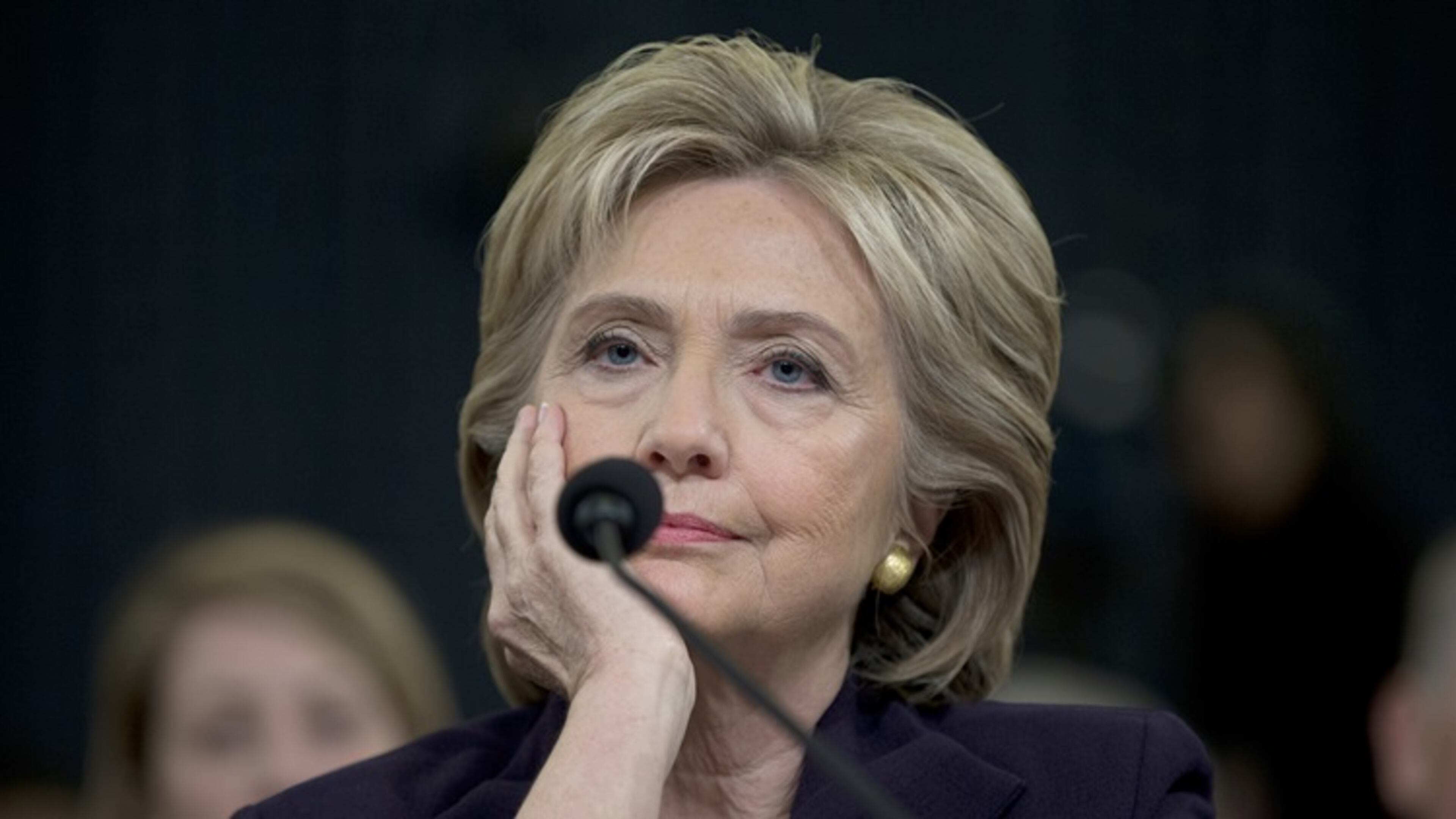Why do people hate Hillary? Let me count the ways ...

Writing at The New York Times, David Brooks poses an interesting question: Why is Hillary Clinton so unpopular?
Here's his oddly bloodless summation:
"At least in her public persona, Clinton gives off an exclusively professional vibe: industrious, calculated, goal-oriented, distrustful. It’s hard from the outside to have a sense of her as a person; she is a role.
"This formal, career-oriented persona puts her in direct contrast with the mores of the social media age, which is intimate, personalist, revealing, trusting and vulnerable. It puts her in conflict with most people’s lived experience. Most Americans feel more vivid and alive outside the work experience than within. So of course to many she seems Machiavellian, crafty, power-oriented, untrustworthy."
That answer is less than satisfying, at least to me. It doesn't begin to account for the fact that at the mere mention of her name, grown men and women recoil in horror. It doesn't explain why in so many minds, she is the embodiment of political evil, and why many Republicans who know full well how disastrous Donald Trump would be as president nonetheless embrace him over a woman who throughout her career has been painfully mainstream.
So here are my own top five reasons for that hatred:
1.) To the degree that there's truth in Brooks' analysis, he refuses to mine it. He fails to acknowledge that his description of Clinton as an all-out striver with little visible private life could be applied to many if not most of our top politicians and businessmen, yet somehow they don't inspire the visceral reaction that Clinton provokes. He chooses not to explore how the single-minded ambition considered natural in any alpha male seeking power becomes "Machiavellian, crafty, power-oriented, untrustworthy" when displayed by a woman.
That double-standard has haunted Clinton since her earliest days in the national spotlight, when she made clear that as First Lady she saw her role as more than just baking cookies and having teas.¹ It's hard to imagine in 2016 how shocked and offended certain people claimed to be when Clinton initially made that remark back in 1992, but even now the resentment hasn't gone away.
2.) Speaking of 1992, no currently active American political figure has been in the national spotlight for as long as Clinton. Over a quarter century, you take a lot of shots and criticism, both fair and unfair. You make a lot of enemies. The many alleged "scandals" targeting Clinton over that time frame, from TravelGate and Vince Foster's "murder" to Benghazi, have also had a cumulative effect on her reputation even though none has ever proved to have a basis in fact. Even people who understand that those scandals have been overblown have by now developed a knee-jerk response to having to hear still more about them.
3.) Inevitably, I think, that long list of alleged scandals has had an impact on Clinton's psyche as well. She has never been as comfortable with the demands of public life as her husband, and the sense of always being under assault for so long has compounded her natural caution, leading her to come across as excessively defensive. The clear mistake that she made in setting up her own independent email system outside government channels can probably be attributed at least in part to that caution that borders at times on paranoia. Try as she might to project openness and vulnerability, she doesn't really dare to do so, and the resulting insincerity compounds her problem.
4.) Nonetheless, her ability to absorb the worst that her enemies can throw at her and stay in the fight has been impressive to her allies and absolutely maddening to her critics. In their eyes, she is a political Rasputin, able to accept blow after blow while still standing upright, and it enrages them. Even the spectacle of Bill Clinton's serial infidelities didn't knock her off her stride for long, and somehow they managed to keep their marriage intact.
More recently, the 12 hours of televised testimony over the Benghazi tragedy epitomized that aspect of her public career. One after the other, Republican congressmen got their chance to attack, question, belittle and rhetorically attack Clinton, and in each and every case she emerged unscathed and smiling. By the end of that long day, it was as if her questioners, not she, had been put on trial and found wanting, and they knew it. They hate her in much the same way that Wile E. Coyote hates the Roadrunner.
5.) The modern conservative movement is deeply reliant on its political entertainment arm, and talk radio, Astroturf fundraising groups and far-right websites in turn require a villain to star in their oversimplified narratives of good and evil. It is something straight out of Orwell's "1984" and its "Two Minutes of Hate," with the make-believe villain Emmanuel Goldstein serving to unite the public against a common foe. Bill Clinton served as that villain during his presidency, as of course has Barack Obama. In the interregnum between the two presidents, Nancy Pelosi was drafted to play the part of Goldstein. But through it all, Hillary has been the constant, the go-to symbol of all that they agree to despise. Even the specter of a President Trump isn't enough to undo a quarter-century of behavioral programming.
-----------------------------
